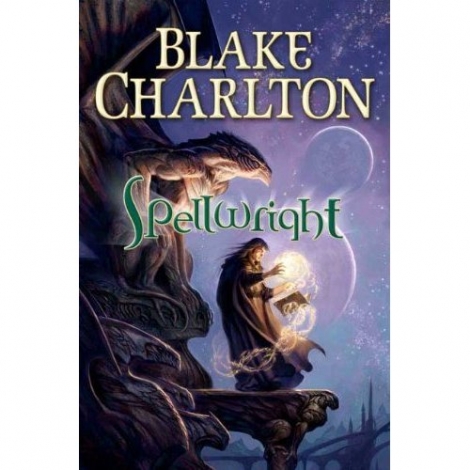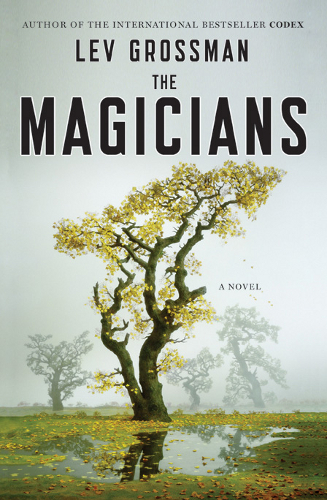I hate to stumble into a dreadful cliché, but the title that jumps immediately to mind for me is J.R.R. Tolkien’s
The Hobbit. You see, I’ve always been a voracious reader, but during my grade-school years it was always Adventure (
The Gammage Cup by Carol Kendall, which, in retrospect, is probably more Fantasy-ish than I realized) and Science Fiction (
Tom Swift by, erm…Victor Appleton II and any novel I could get my hands on by Michael Crichton) and dismissed Fantasy as being ‘full of unicorns and princesses, only for pansies and my mom” – an eloquent, but not terribly original opinion for a 10-year-old boy, but there it is.
Then, in the summer after Grade Six, for some unfathomable reason (probably very subtle hinting from my mother, if I know her), I picked up The Hobbit, and, well, the rest is history.
Needless to say, Tolkien blew away my preconceptions and opened a myriad of doorways to whole new realms of possibility. He began my love-affair with Fantasy and I try my damndest to read The Hobbit once a year, counting it as my second-favourite novel, behind only…
The Shadow of the Wind by Carlos Ruiz Zafon sat on my bookshelf for, literally, years before I finally read it. I think, more than anything, I was afraid that it wouldn’t live up to the hype heaped upon it. So it sat, neglected and gathering dust … which is rather fitting, when one considers the story within.
Then, with a 2 month Eastern-European backpacking trip around the corner, I figured it was finally time to dive in and give the book a shot. I began it on the plane ride over and Zafon’s words still haunt me, almost a year later.
The obvious combination of a life-changing nine-week period coupled with a hauntingly beautiful book have carved a special place in my heart, and I’d give almost anything to be able to be back in that place – rumbling traincar; the beautiful, rugged landscape of the Czech Republic and Slovakia; The Shadow of the Wind glued to my hand. Ahh, memories!
The final book that sticks out is The Dragonbone Chair by Tad Williams, the first of his Memory, Sorrow and Thorn trilogy, a classic in the genre. What’s interesting about it, though, isn’t how I fell in love with it from the first page, but rather how I couldn’t get into it, despite wanting to fall head-over-heels.
In fact, I read it three-and-a-half times before I finally discovered the beauty! The first couple of times I managed to finish it, even reading a bit of the sequel, The Stone of Farewell once, but just lacked interest in the story. One time I couldn’t even make it past the half-way point.
But, being a stubborn jackass, I picked it up for a forth time… and fell completely, utterly in love. I still can’t explain what the difference was this time (I was older; I had enjoyed Shadowmarch by Williams; I was a fan of slower narrative novels, like Robin Hobb’s Farseer Trilogy), but everything just clicked and I burned through the rest of the trilogy in short order. I now considering Memory, Sorrow and Thorn to be my favourite completed Fantasy series. Not a bad turn-around, eh?
Of course, the list could go on forever (if I included the likes of Ender’s Game by Orson Scott Card, which saved me from getting jaded on reading; or The Elfstones of Shannara, which filled that void after I had finished Tolkien; or The War of the Flowers by Tad Williams, which is a huge inspiration for my Work-in-progress; or The Anubis Gates, which took me forever to track down and was worth every second of the search), but I won’t ramble… too much.

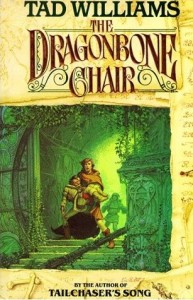 The Dragonbone Chair by Tad Williams
The Dragonbone Chair by Tad Williams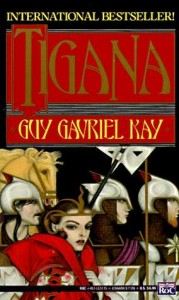 Anything by Guy Gavriel Kay
Anything by Guy Gavriel Kay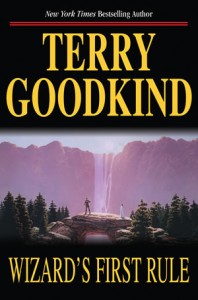 Wizard’s First Rule by Terry Goodkind
Wizard’s First Rule by Terry Goodkind